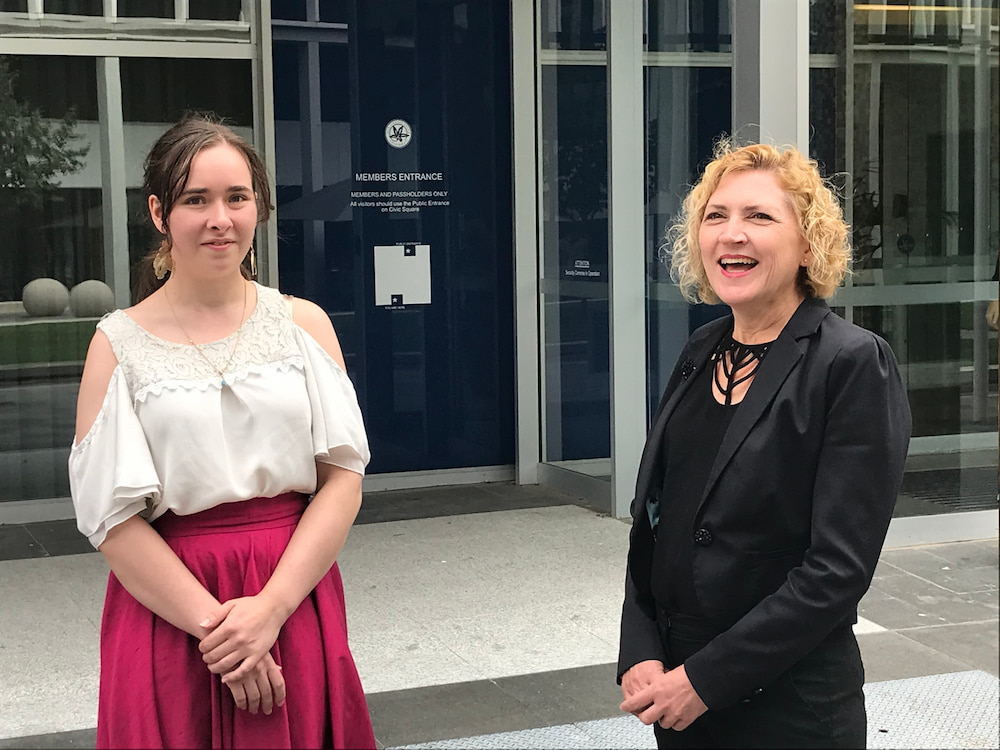In her first motion in the ACT Legislative Assembly, ACT Greens MLA Laura Nuttall called for better supports for young people struggling with vaping.
“Here in the ACT, we don’t necessarily have strong supports in place for people who want to quit,” Ms Nuttall said.
Many young people, she said, are concerned about the federal government’s ban on vaping. At the start of this year, the importation of disposable vapes was prohibited. In the ACT, vapes require doctors’ prescriptions, can only be sold legally at pharmacies, and cannot be sold to people under the age of 18.
Young people who vape have three choices, Ms Nuttall said: they can try to get vapes illegally, and risk two-year prison sentences and fines of $32,000; they can try to get a prescription from a GP, but doctors are hesitant to prescribe nicotine products to minors; or they can try to quit.
ACT Health does not have an established support service to help children and young people with nicotine dependence, Ms Nuttall observed – even though young people are some of the biggest users of vapes.
Ms Nuttall estimates that 30 per cent of young people in the ACT vape. Nationally, last year, 30 per cent of Australian secondary school students reported having vaped, and 16 per cent vape regularly. (The 2024 Generation Vape research project, led by Cancer Council NSW, found that 36 per cent of young people regularly vape.) 92 per cent of vape users did not have a prescription.
“The trouble is data in the ACT space is still relatively new,” Ms Nuttall said. The ACT relies on federal studies or work from the NSW and Victoria. “We haven’t made a concerted effort to check how many people vape and what their attitudes towards it are.”
E-cigarettes can impede brain development in young people, cause seizures, poor concentration, mood disorders, insomnia, irritability, and anxiety, the Cancer Council ACT said.
Moreover, the vaping market is increasingly focusing on young people, Ms Nuttall said – and vaping is a gateway to smoking cigarettes. “A lot of the vast majority of young people who vape haven’t actually tried a cigarette in their lifetime, but we actually find that they’re more likely to try a cigarette after.”
Ms Nuttall’s motion called on the ACT Government to investigate what information and support services need to be enhanced or implemented to support young people in the ACT to reduce the harm caused by vaping. It passed the Legislative Assembly.
“It’s really important to me that this was a motion dedicated towards young people,” Ms Nuttall said. “As a young person myself, I know the importance of actually getting into the chamber and being able to speak about issues that affect me.”
The motion also called for a community roundtable on how best to deliver information and support services.
Those services must be designed with young people, Ms Nuttall said. “Young people tend to respond much better to solutions if they’re part of the process.”
Emma Davidson, ACT Minister for Population Health, said the motion contributed to the Act’s long history of taking a harm reduction approach to drug use. “We want to make sure that we’re looking after young people,” she said. “What works for young people is not always the same as what works for adults. We need to be listening to what works for young people and helping them.”



